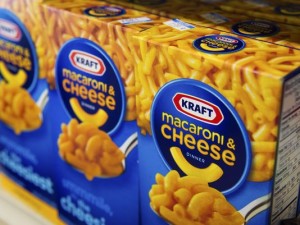F.D.A. Ruling Would All but Eliminate Trans Fats
Last week, the Food and Drug Administration proposed measures on Thursday that would all but eliminate artery-clogging, artificial trans fats from the food supply. The FDA estimates that 20,000 heart attacks and 7,000 deaths  from heart disease could be prevented each year as a result of the ban. The agency has proposed that partially hydrogenated oils, the source of trans fats, no longer have a GRAS (Generally Recognized As Safe) status. Companies would have to prove that such oils are safe to eat, which will prove difficult with the extensive scientific research that proves the contrary. The Institute of Medicine has concluded that there is no safe level for consumption of them, a conclusion that the F.D.A. cited in its reasoning.
from heart disease could be prevented each year as a result of the ban. The agency has proposed that partially hydrogenated oils, the source of trans fats, no longer have a GRAS (Generally Recognized As Safe) status. Companies would have to prove that such oils are safe to eat, which will prove difficult with the extensive scientific research that proves the contrary. The Institute of Medicine has concluded that there is no safe level for consumption of them, a conclusion that the F.D.A. cited in its reasoning.
Kraft Dims Artificial Orange Glow Of Its Mac And Cheese
Kraft Foods recently announced that starting early next year, they plan to remove artificial food coloring from their mac and cheese products. The artificial dyes will be replaced with colors from spices such as paprika, annatto and  turmeric. This announcement came as an online petition calling for the dyes to be removed was quickly gaining momentum. The campaign had over 350,000 signatures at the time. Kraft denies that this was in response to the request. While any reduction or removal of artificial dyes is an improvement, Kraft will not be removing the dyes from all of their products, but instead a select few that are marketed to kids.
turmeric. This announcement came as an online petition calling for the dyes to be removed was quickly gaining momentum. The campaign had over 350,000 signatures at the time. Kraft denies that this was in response to the request. While any reduction or removal of artificial dyes is an improvement, Kraft will not be removing the dyes from all of their products, but instead a select few that are marketed to kids.
Cargill to Label Meat After ‘Pink Slime’ Uproar
Cargill Inc. announced last week that it will start labeling its product, finely textured beef, more accurately known as pink slime because of consumer demand. Cargill’s finely textured beef is a processed meat product made from chunks of beef, including trimmings, and exposed to citric acid to kill E. coli and other dangerous contaminants. The product, which Cargill  has made since 1993, is used to produce higher-volume, less fatty ground beef. Cargill said Tuesday that the new ground-beef packaging, slated to debut early next year, came about after the agribusiness firm surveyed more than 3,000 consumers over the past 18 months about their views on ground beef and how it is made.?The survey arose after last year’s intense media coverage of South Dakota-based Beef Products Inc., which makes a similar product called “lean finely textured beef,” or LFTB. BPI relies on a different technology than Cargill and uses ammonium hydroxide, rather than citric acid, as a processing agent to kill potential pathogens.
has made since 1993, is used to produce higher-volume, less fatty ground beef. Cargill said Tuesday that the new ground-beef packaging, slated to debut early next year, came about after the agribusiness firm surveyed more than 3,000 consumers over the past 18 months about their views on ground beef and how it is made.?The survey arose after last year’s intense media coverage of South Dakota-based Beef Products Inc., which makes a similar product called “lean finely textured beef,” or LFTB. BPI relies on a different technology than Cargill and uses ammonium hydroxide, rather than citric acid, as a processing agent to kill potential pathogens.

Comments are closed.